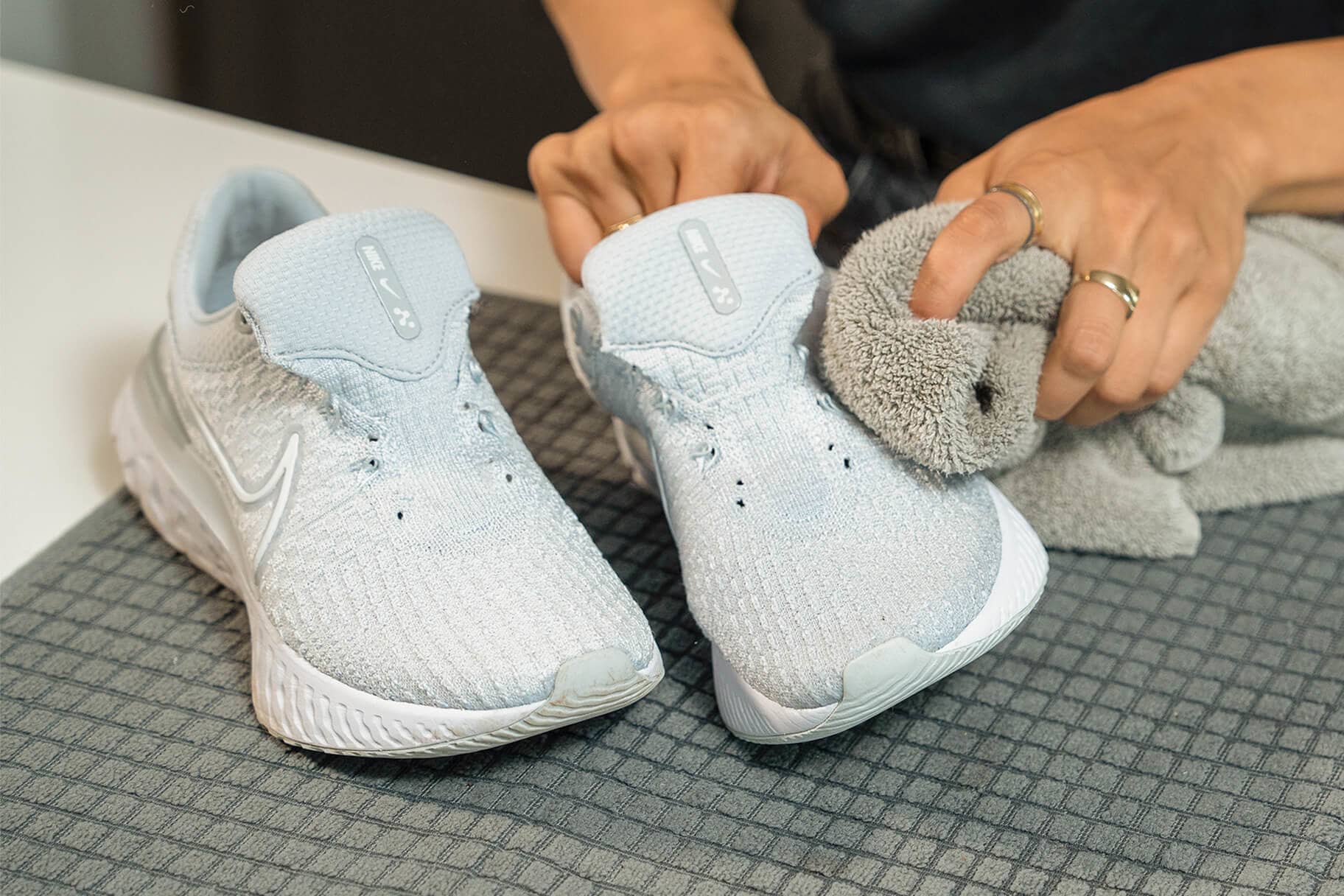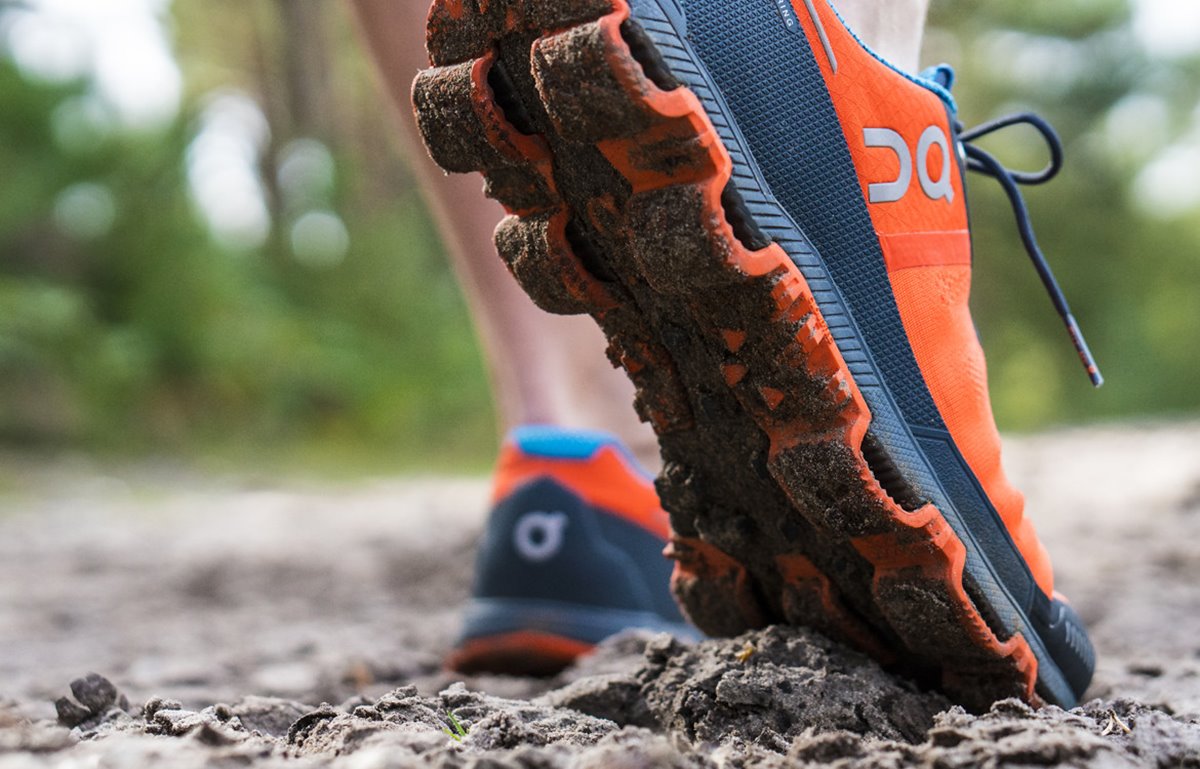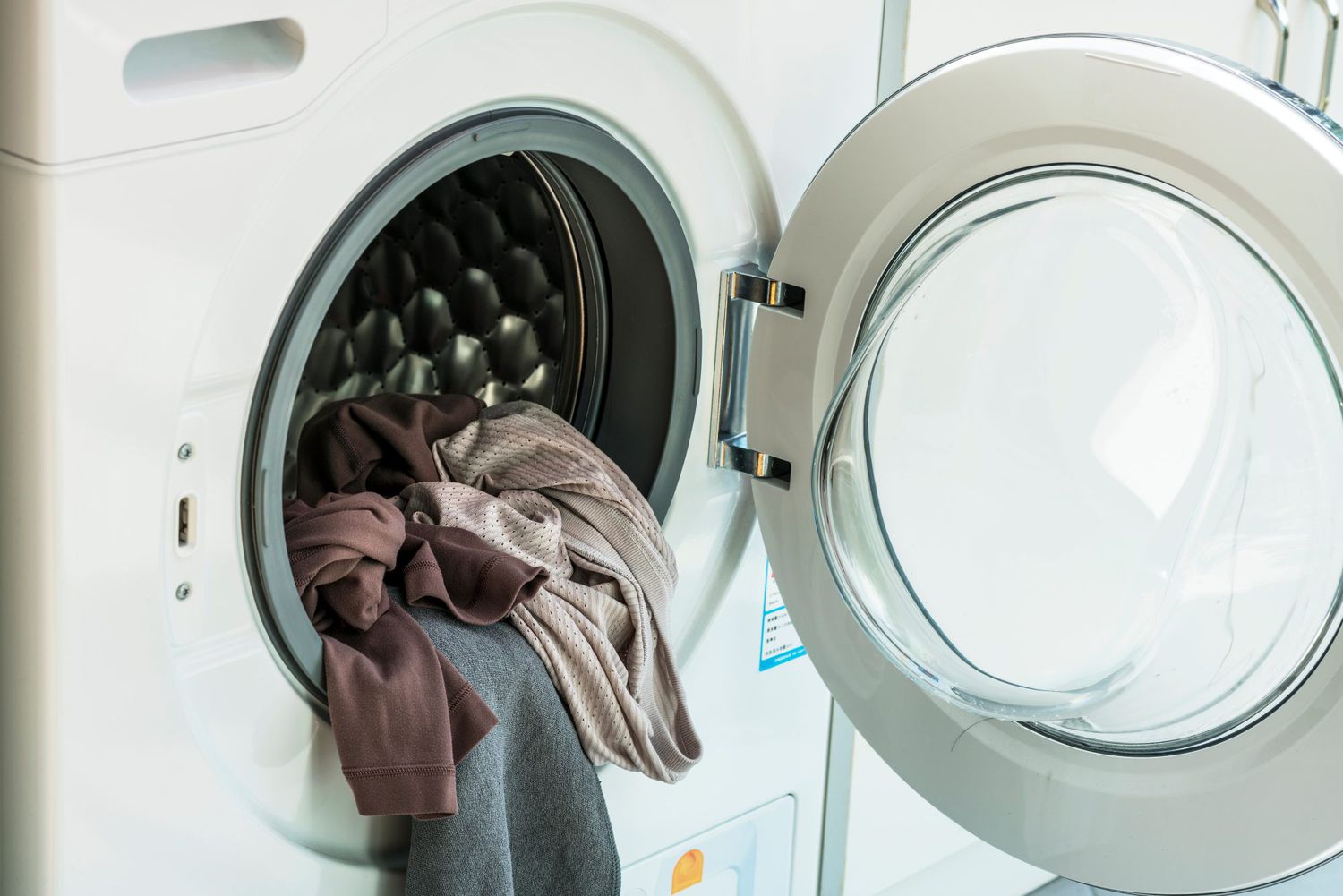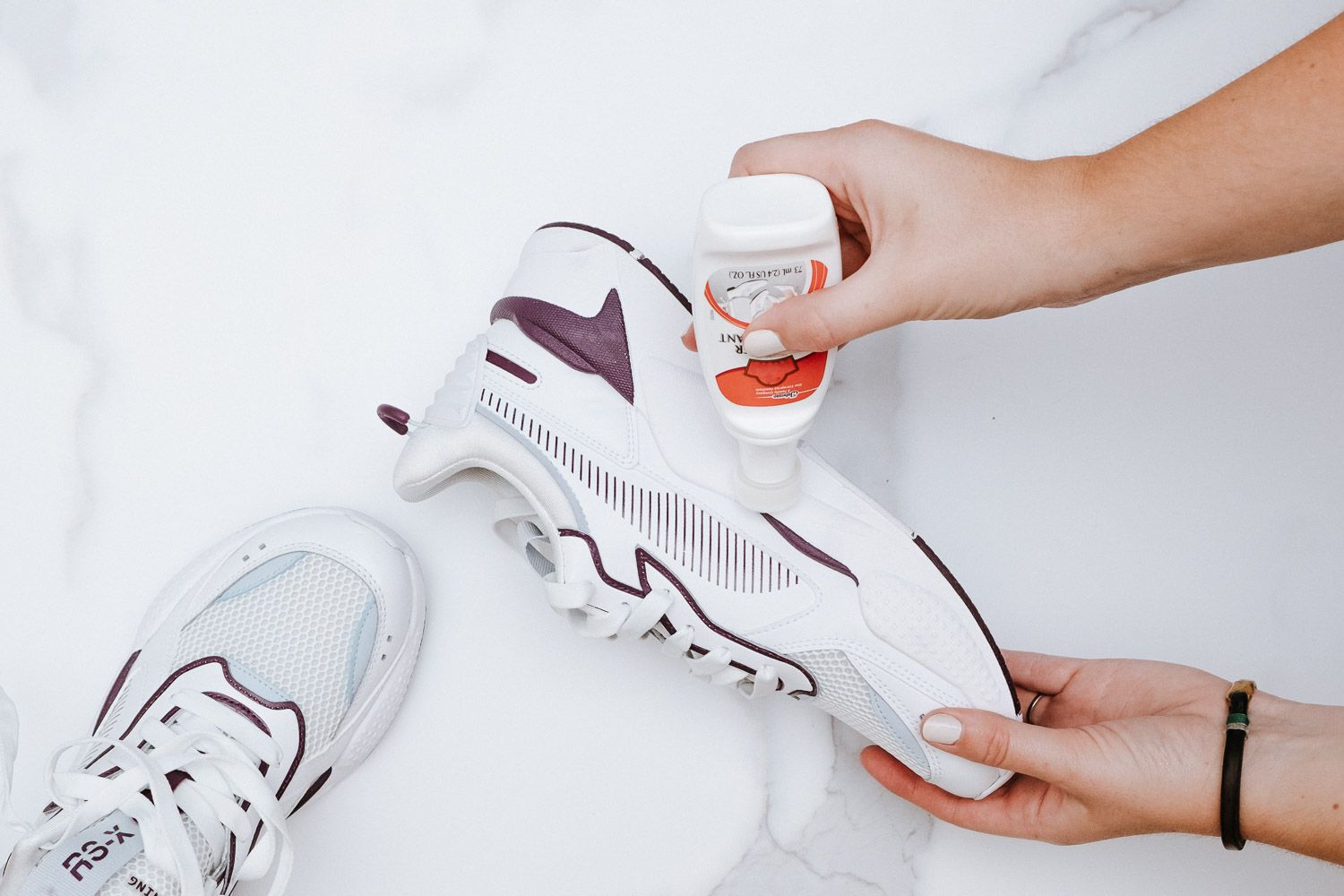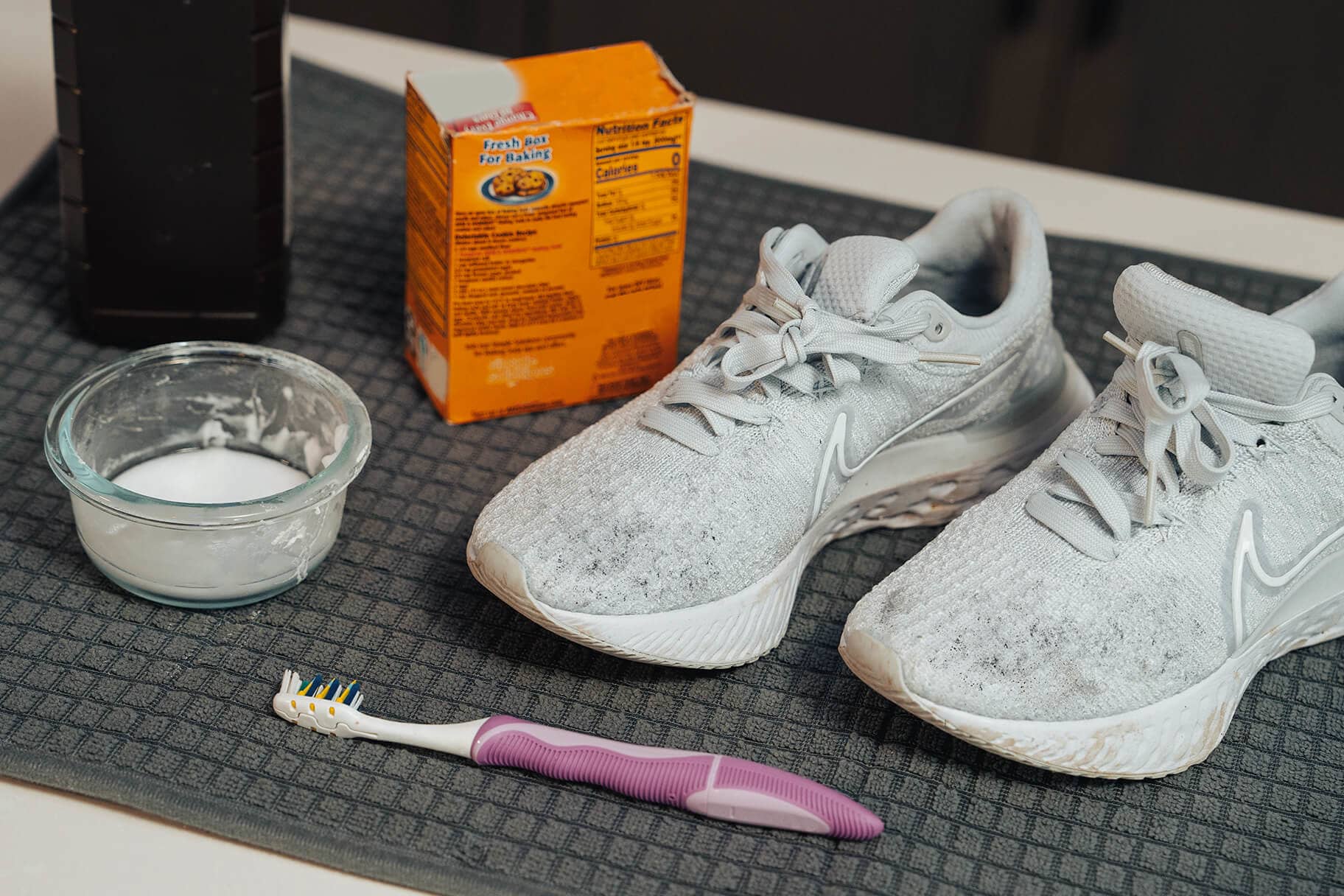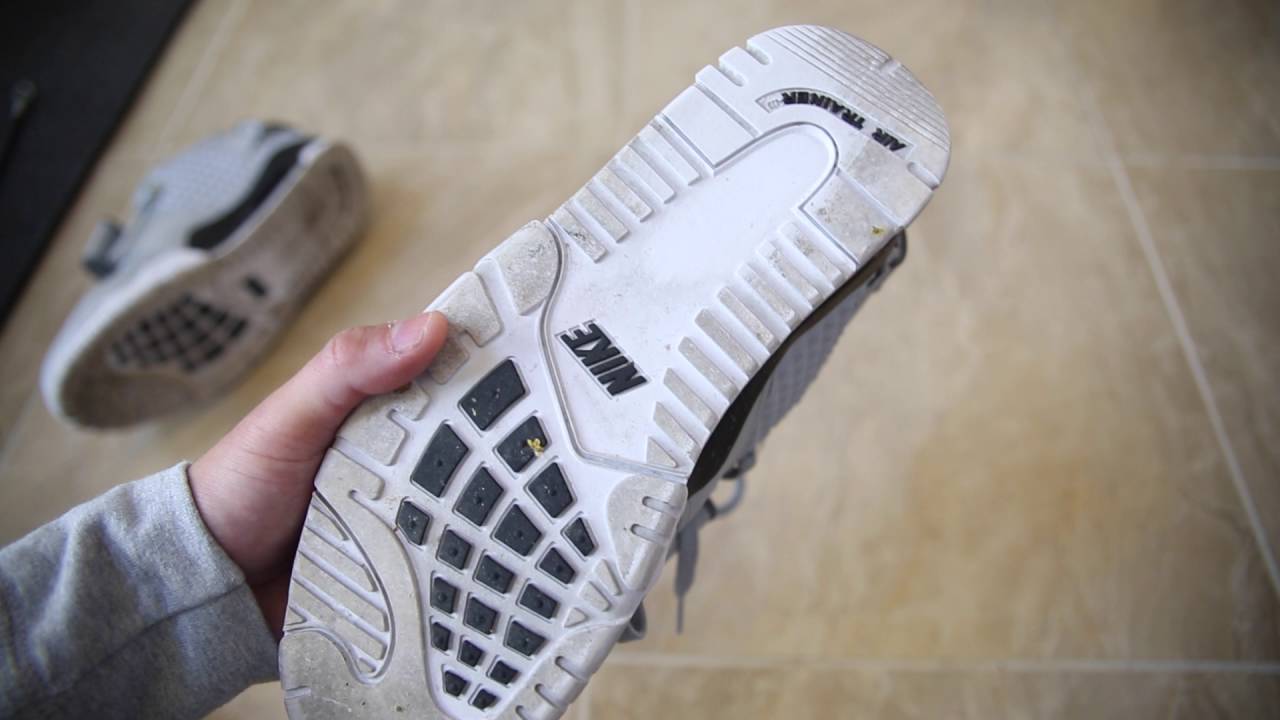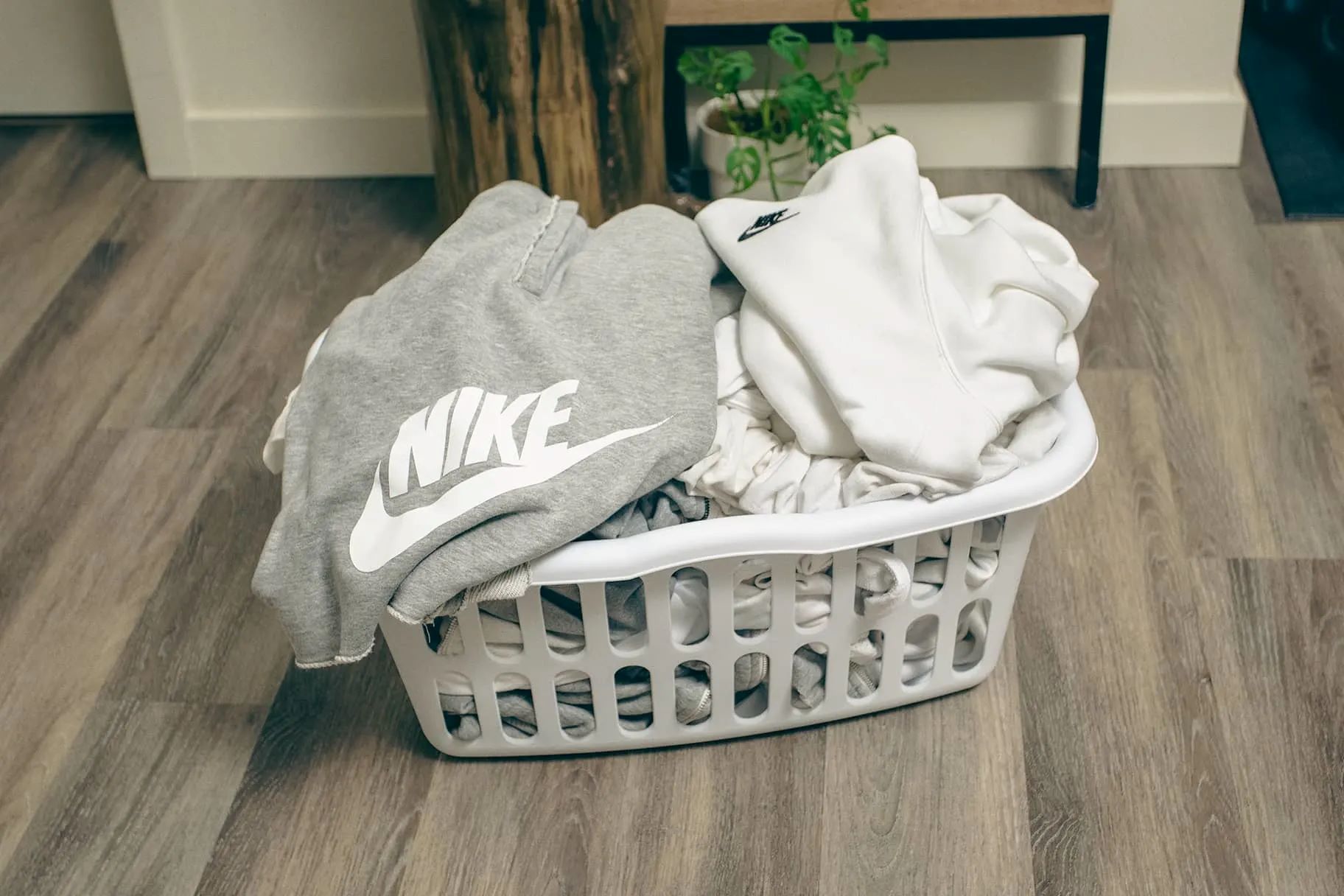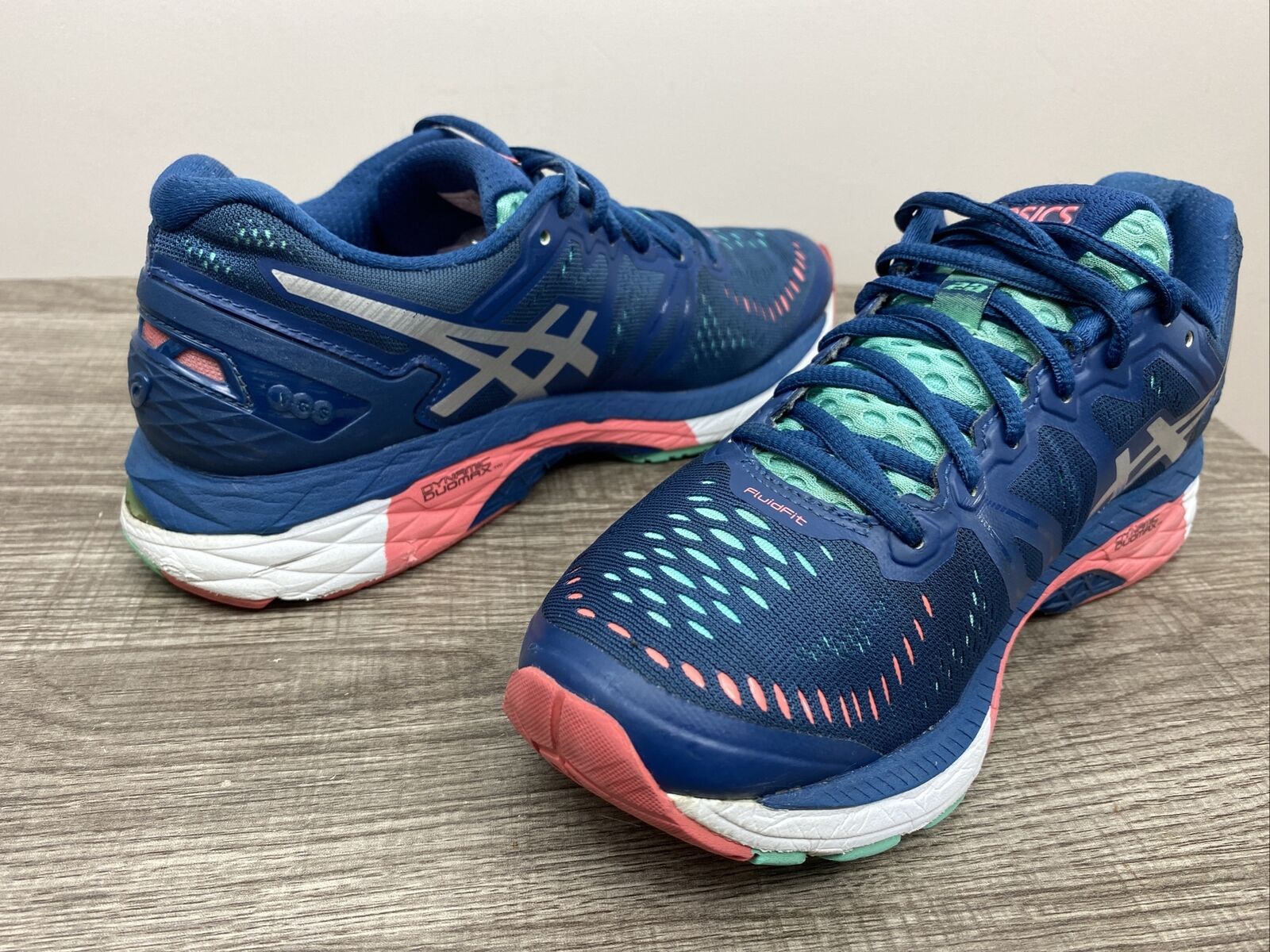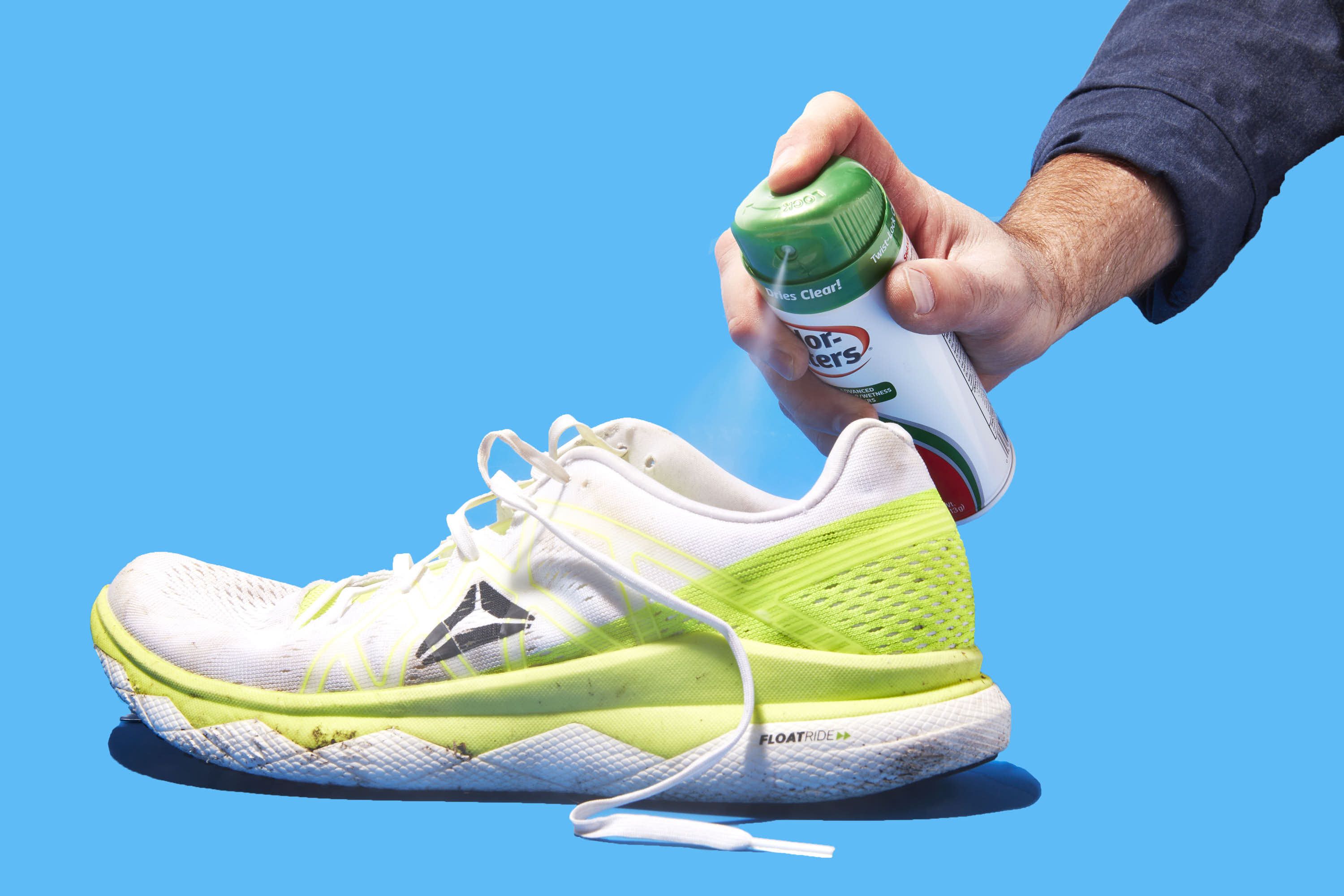

Featured
How To Get Smell Out Of Running Shoes
Published: August 12, 2023
Looking for a solution to get the smell out of your running shoes? Check out our featured guide on how to eliminate odors and keep your shoes fresh.
Introduction
Having a good pair of running shoes is essential for any runner. They provide comfort, protection, and support during workouts, races, and everyday runs. However, one common issue that many runners face is the unpleasant smell that can develop in their shoes over time.
The cause of this odor is primarily due to the accumulation of sweat, bacteria, and moisture in the shoes. When you run, your feet naturally perspire, and that sweat is absorbed by your socks and shoes. This moisture creates a perfect breeding ground for bacteria, which can then lead to the development of a foul odor.
Not only can this smell be embarrassing, but it can also be a sign of poor hygiene and potential foot health problems. It’s important to address the issue promptly to prevent any further complications. Fortunately, there are several effective methods to get rid of the smell and keep your running shoes fresh and odor-free.
This article will guide you through the various causes of odor in running shoes and provide practical solutions for eliminating the unpleasant smell. We’ll explore both natural remedies that you can easily find at home and commercial products specially designed for eliminating shoe odor. Additionally, we’ll discuss preventive measures to help you maintain fresh-smelling shoes in the long run.
By following these tips and incorporating them into your regular shoe care routine, you can say goodbye to the smell and enjoy your runs without any worries or discomfort. So, let’s dive in and discover how to get the smell out of your running shoes!
Understanding the causes of odor in running shoes
Before we dive into the solutions, it’s important to understand why running shoes develop that unpleasant smell. As mentioned earlier, the primary culprits are sweat, bacteria, and moisture that accumulate in the shoes over time.
When you run or engage in any physical activity, your feet naturally sweat to regulate temperature. This sweat is trapped in your socks and absorbed by your shoes, creating a moist environment inside. Bacteria thrive in damp conditions, and the sweat provides the perfect food source for them to grow and multiply.
As bacteria break down the sweat, they produce byproducts that have a distinct odor. These byproducts, combined with the dampness of the shoes, create a strong and unpleasant smell. Additionally, if you frequently wear your running shoes without allowing them to dry properly, the moisture can lead to the growth of fungus, further contributing to the odor problem.
It’s worth noting that certain individuals are more prone to developing smelly running shoes. Factors such as excessive sweating, wearing shoes without proper ventilation, or using old and worn-out shoes can increase the likelihood of odor formation. Additionally, running in hot and humid conditions can exacerbate the problem.
Understanding these causes will help you take appropriate measures to address the issue effectively. By targeting the root causes of the odor, you can eliminate the smell and prevent it from recurring in the future.
Preparing your shoes for odor removal
Before diving into the various methods of odor removal, it’s important to prepare your running shoes properly. This step will help enhance the effectiveness of the odor elimination process and ensure better results.
The first step is to clean your shoes thoroughly. Remove the shoelaces and insoles if they are removable. Use a soft brush or cloth to remove any visible dirt or debris from the exterior of the shoes. Pay special attention to the areas where sweat and bacteria tend to accumulate, such as the insole and the inner lining.
Next, create a mixture of mild detergent or shoe cleaner and warm water. Dip a cloth or sponge into the solution, wring out any excess moisture, and gently scrub the exterior of the shoes. Avoid submerging the shoes in water or using harsh chemicals, as this can damage the materials.
Once you have cleaned the exterior, focus on removing odor-causing bacteria from the interior. Prepare a mixture of equal parts vinegar and water or hydrogen peroxide and water. Dampen a clean cloth or sponge with the solution and wipe down the inner lining, insole, and any other areas where odor and bacteria may be present. Vinegar and hydrogen peroxide have natural antibacterial properties that can help kill the odor-causing bacteria.
After thoroughly cleaning the shoes, rinse off any remaining soap or cleaning solution with a damp cloth. Use a clean, dry cloth to absorb excess moisture from both the exterior and interior of the shoes. Allow them to air dry completely in a well-ventilated area. Avoid using direct heat sources like a hairdryer or placing them in direct sunlight, as this can cause the shoes to shrink or become damaged.
By properly cleaning and preparing your running shoes, you set the stage for effective odor removal. With a clean canvas, you’ll be able to tackle the odor problem more efficiently and achieve longer-lasting results.
Natural remedies and home solutions for odor removal
When it comes to eliminating odor from running shoes, there are various natural remedies and home solutions that can be effective without the use of harsh chemicals. These methods not only help remove the smell but also leave your shoes smelling fresh and clean.
One of the simplest and most effective natural remedies is using baking soda. Baking soda acts as a natural deodorizer by neutralizing odors. Sprinkle a generous amount of baking soda inside your running shoes, making sure to coat the entire interior. Let it sit overnight to allow the baking soda to absorb the odor. In the morning, shake out the excess baking soda and replace with fresh insoles or socks.
Another effective method is using activated charcoal. Activated charcoal has excellent odor-absorbing properties. Place a few activated charcoal sachets or a small bowl of activated charcoal in each shoe. Leave them in the shoes for a couple of days to absorb the odor. Remember to replace the activated charcoal regularly for best results.
Essential oils can also be used to combat shoe odor. Choose oils with antibacterial properties, such as tea tree oil, eucalyptus oil, or peppermint oil. Add a few drops of your chosen essential oil onto a cotton ball and place it inside your shoes. Let it sit overnight to allow the oil to eliminate the odor. Remove the cotton ball before wearing the shoes.
Vinegar is another effective natural remedy for eliminating odor. Fill a spray bottle with equal parts white vinegar and water. Spritz the interior of your running shoes with the vinegar solution and allow them to air dry. The vinegar will work to eliminate the odor-causing bacteria, leaving your shoes fresh and odor-free.
Lemon and orange peels are also excellent natural deodorizers. Place a few citrus peels inside your running shoes and let them sit overnight. The natural oils in the peels will help neutralize the odors. Remove the peels in the morning and enjoy the fresh scent.
Remember that these natural remedies may require repeated use for stubborn odors. Additionally, it’s important to maintain good shoe hygiene by allowing your shoes to dry properly after each use and regularly washing your socks. These simple home solutions, coupled with preventive measures, can help you effectively eliminate odor from your running shoes.
Using commercial odor eliminators for running shoes
If natural remedies and home solutions don’t fully eliminate the odor from your running shoes, commercial odor eliminators can be an effective alternative. These products are specifically designed to tackle stubborn odors and provide long-lasting freshness.
One popular type of commercial odor eliminator is shoe deodorizer sprays. These sprays contain ingredients that neutralize the odor-causing bacteria and leave a fresh scent behind. To use, simply spray the inside of your running shoes and allow them to air dry. Be sure to follow the instructions on the product for best results and to avoid any potential damage to your shoes.
Odor-absorbing inserts or insoles are another option. These inserts are made with materials that absorb and neutralize odors. Simply insert them into your running shoes and let them work their magic. Some odor-absorbing inserts are reusable and can be washed or replaced when needed.
For those who prefer a more hands-off approach, shoe deodorizer pods or bags can be a convenient option. These small pods or bags are filled with odor-absorbing materials like activated charcoal or baking soda. Place them inside your shoes when not in use, and they will naturally absorb the odors over time. These pods or bags are typically reusable and can last for several months before needing to be replaced.
Alternatively, there are shoe deodorizer balls that you can drop into your shoes. These small balls are designed to release a fresh scent and absorb odors. They are easy to use and can be left in your running shoes when not in use.
When using commercial odor eliminators, it’s important to follow the instructions provided by the manufacturer. Some products may need time to work, while others may require regular application for optimal results. It’s also worth noting that these products may have specific instructions regarding usage on different types of materials, so be sure to check for compatibility before applying them to your running shoes.
Investing in a good-quality commercial odor eliminator can be a worthwhile solution for persistent shoe odor. These products are often formulated to target the root causes of odor and provide long-lasting freshness, giving you confidence in your odor-free running shoes.
Preventive measures to avoid odor in running shoes
Prevention is key when it comes to avoiding odor in your running shoes. By taking proactive measures, you can minimize the chances of developing unpleasant smells and keep your shoes fresh and odor-free.
One of the simplest preventive measures is to ensure that your feet and socks are clean and dry before putting on your running shoes. Wash your feet thoroughly with soap and water, paying attention to the areas between your toes. Dry your feet completely, especially in the spaces between your toes, before putting on your socks and shoes. Moisture from sweat and damp socks provides an ideal environment for odor-causing bacteria to thrive.
Choosing the right socks can also make a significant difference. Opt for moisture-wicking socks made with breathable materials. These socks help draw moisture away from your feet, keeping them dry and reducing the chances of bacterial growth. Avoid wearing cotton socks, as they tend to retain moisture and contribute to odor.
It’s crucial to allow your running shoes to dry properly after each use. Remove the insoles, loosen the laces, and open the shoe tongue to promote air circulation. Place your shoes in a well-ventilated area, away from direct sunlight or heat sources. This will help prevent the buildup of moisture and the growth of odor-causing bacteria.
Consider rotating multiple pairs of running shoes. Alternating between different pairs allows each pair to fully dry out between uses. This not only helps prevent odor but also extends the lifespan of your shoes by reducing wear and tear.
Regularly cleaning your running shoes is another preventive measure. After each run, remove any dirt or debris from the exterior of your shoes. Use a soft brush or cloth to gently clean the shoes, paying attention to areas where sweat and bacteria tend to accumulate. Additionally, wash your socks after each use to minimize odor-causing bacteria transferring back into your shoes.
If you have a particularly persistent odor problem, consider using odor-absorbing inserts or insoles inside your running shoes. These can help reduce bacteria growth and absorb any lingering smells.
Last but not least, proper shoe storage is essential. Avoid storing your running shoes in a closed, dark space where moisture can accumulate. Instead, choose a well-ventilated area that allows for air circulation. You can also use shoe deodorizer pods or bags to help absorb any odors while your shoes are in storage.
By implementing these preventive measures, you can maintain fresh-smelling running shoes and enjoy odor-free runs. Remember that consistency is key, so make these practices a part of your regular shoe care routine.
Conclusion
Dealing with odor in your running shoes can be a frustrating and embarrassing problem. However, by understanding the causes of the odor and taking the appropriate measures, you can effectively eliminate the smell and keep your shoes fresh.
Whether you opt for natural remedies and home solutions or choose to use commercial odor eliminators, there are plenty of effective methods available to tackle shoe odor. From baking soda and essential oils to shoe deodorizer sprays and odor-absorbing inserts, the key is to address the root causes of the odor and prevent bacterial growth.
In addition to eliminating odor, it’s important to adopt preventive measures to avoid the problem altogether. By keeping your feet and socks clean and dry, allowing your shoes to fully dry out after each use, rotating footwear, and implementing regular cleaning routines, you can minimize odor-causing bacteria and keep your running shoes fresh and odor-free in the long run.
Remember, taking care of your running shoes goes beyond just the physical appearance. Maintaining their freshness and hygiene is crucial for your comfort, foot health, and overall running experience.
So, the next time you lace up your running shoes, be confident in knowing that you have the knowledge and tools to combat any potential odor issues. Say goodbye to unpleasant smells and keep your shoes smelling fresh as you hit the road or trail for your next run.
